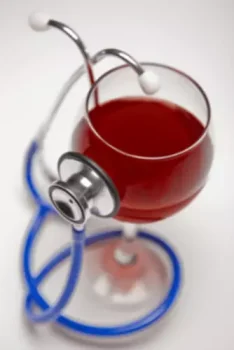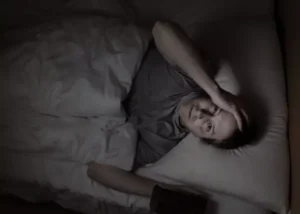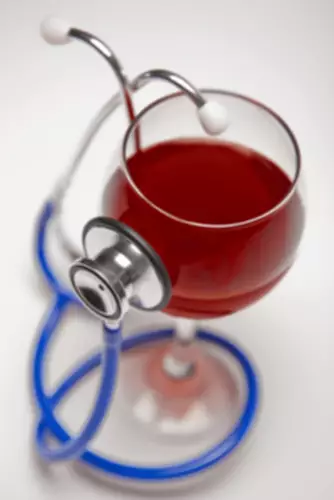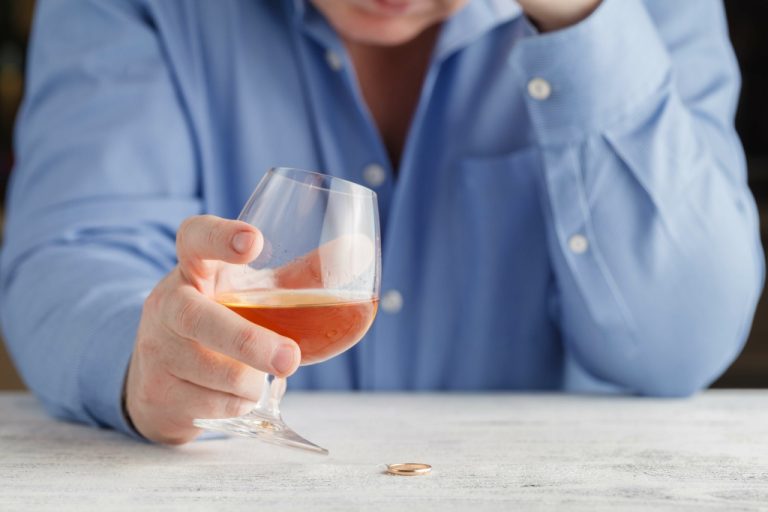Future studies should focus on elucidating neural mechanisms underlying sensitization of symptoms that contribute to a negative emotional state resulting from repeated withdrawal experience. Such studies will undoubtedly reveal important insights that spark development of new and more effective treatment strategies for relapse prevention as well as aid people in controlling alcohol consumption that too often spirals out of control to excessive levels. Glutamate physiological dependence on alcohol is the major excitatory neurotransmitter in the brain; it exerts its effects via several receptor subtypes, including one called the N-methyl-d-aspartate (NMDA) receptor. Glutamate systems have long been implicated in the acute reinforcing actions of alcohol, and alcohol effects perceived by an organism can be mimicked with NMDA receptor antagonists (Colombo and Grant 1992). In contrast to its effects on GABA, alcohol inhibits glutamate activity in the brain.
If you’re concerned about someone who drinks too much, ask a professional experienced in alcohol treatment for advice on how to approach that person. The alcohol dependence syndrome was seen as a cluster of seven elements that concur. It was argued that not all elements may be present in every case, but the picture is sufficiently regular and coherent to permit clinical recognition.
Health Problems Caused By Alcohol Dependence
If you’re worried about your drinking, get in touch with your local GP surgery, who will be able to help. If you’re worried that you have any of these symptoms, talk to a health professional at your GP surgery or seek further information from one of the organisations at the bottom of this page. There’s also more of an effect on your brain and its development if you’re younger — one that can have a lasting impact. And if you have one too many alcoholic drinks, you may start to slur your speech and have trouble walking in a straight line — and that’s all before dealing with a hangover the next day.
- Taking regular breaks from alcohol is the best way to lower your risk of becoming dependent on it.
- Activated neurons release chemical signaling molecules (i.e., neurotransmitters) that bind to specific proteins (i.e., receptors) on other neurons.
- Excessive drinking may affect your menstrual cycle and potentially increase your risk for infertility.
- It would be misleading to say that physical addiction and psychological addiction are completely separate.
- Depending on how often you drink and how much, you may need support from a healthcare professional if you want to stop drinking.
- It’s also called alcohol dependence, alcohol addiction or alcohol abuse.
This can weaken your immune system and increase your risk for long-term health complications. Drinking too much alcohol may cause immediate physical effects such as hangovers and intoxication. Alcohol poisoning (overdose) can happen if you drink large amounts of alcohol quickly.
Brain Circuits Mediating Alcohol Reinforcement
If your body can’t manage and balance your blood sugar levels, you may experience greater complications and side effects related to diabetes. The pancreas helps regulate how your body uses insulin and responds to glucose. If your pancreas and liver don’t function properly due to pancreatitis or liver disease, you could experience low blood sugar, or hypoglycemia. Alcohol use can begin to take a toll on anyone’s physical and mental well-being over time. These effects may be more serious and more noticeable if you drink regularly and tend to have more than 1 or 2 drinks when you do.
You won’t spend one weekend binge drinking and wake up on Monday with alcohol dependency. This is because it takes time for the effects of alcohol on the brain to make structural and chemical changes. Instead, a dependence develops in chronic drinkers who consume alcohol on a regular (usually daily) basis.
When in active addiction, we tend to ignore the things that make us successful. So when getting back on our feet and in recovery, cooking and cleaning for https://g-markets.net/sober-living/alcohol-shakes-symptoms-causes-treatments-and/ ourselves is part of a healthy recovery plan. Living in a halfway house can pose a lot of stress and difficulty for newly recovering addicts at first.
- For in those early days of recovery, this safety net can be a real comfort.
- Case managers offer individualized guidance and support, helping residents access resources, set goals, and develop a relapse prevention plan.
- If you or someone you love is struggling with addiction, call Your First Step.
- Sober living homes are either run privately or as a part of a continuum of care from an addiction treatment provider.
- You have to have at least a little bit of clean time before you go into any type of recovery housing.
- Research published in the Journal of Psychoactive Drugs discussed how sober living spaces mimic comfortable homes because “the fees from residents sustain certain privileges”.
The difference is that sober housing will always require rent to be privately paid. It is less structured in daily schedules but can vary in requirements for residence by the homeowner. The residential facility is typically part of the continuum of care for an overseeing rehab institution.
Halfway House vs. Sober Living
Community is key in recovery, and living with individuals with a common goal makes early sobriety possible. Maintaining sobriety can be a difficult process, however, a sober living house may provide you with the kind of structure and support you’ll need to maintain your sobriety. If you’re having a hard time adjusting to a sober life, reach out to a mental health professional who specializes in addiction and substance use. While the goal of sober living homes and halfway houses are similar, there are a few variances. For starters, halfway houses are frequently intended for those who have recently been released from prison and have completed a drug treatment program while incarcerated. Sober living homes and halfway houses share several commonalities, starting with purpose.
- PSH units may be deployed in a variety of settings, depending on the individual’s level of need and the availability of supports (provided either through home visits or in a community-based setting).
- Halfway houses and sober living homes ease people from inpatient treatment to independent living.
- The organization promotes self-reliance and democracy within the house.
- Although halfway houses share a lot in common with sober-living homes, there are a few key differences that set them apart.
- Sober living homes are also not state-sponsored.4 You may qualify for a scholarship or grant funding for a sober living home provided by nonprofit organizations.
A halfway house is a good option if returning to normal life is too overwhelming, but you no longer need medical supervision. It allows you to live in a safe, substance-free environment while readjusting to life outside treatment. Sometimes, a person who has committed a drug-related crime may be sentenced to stay in a halfway house for a certain time instead of being sentenced to prison or jail time. Halfway houses are a bridge between incarceration and community living. In addition to a sober living facility or a halfway house, there is also a place called the three-quarter house.
Substance Abuse
The focus at a three-quarter house is not so much on sobriety (although it is a requirement), but on functioning as a self-supporting adult who can stay sober and maintain a healthy home environment. This is where someone goes after they have left a halfway house and have proven that they are a responsible, recovering person What is a Halfway House? What to Expect in Halfway Housing who is working a program. Someone may go to a halfway house for a few months when they get out of rehab. Or, this might be a step up for someone who was homeless and is halfway to becoming fully independent. A halfway house is where five to as many as twenty people live together in a house with one common goal – recovery.
Turning the page on addiction Communities pinecountynews.com – pinecitymn.com
Turning the page on addiction Communities pinecountynews.com.
Posted: Wed, 25 Oct 2023 18:21:00 GMT [source]

These triggers have led to extreme discomfort, family conflict, onset of illness, worsening of symptoms, episodes and hospitalizations. The steps are about understanding yourself, making positive changes, and learning to help others. The 12th step can be applied by helping an addict who has relapsed to return to recovery. While it can be difficult to control triggers, those who experience them can learn from past experiences, apply what they learn, and limit the risk of being re-triggered. Avoid only focusing on what happens after a trigger; also focus on what can be done beforehand. One of the biggest obstacles people face when they are suffering from a substance use disorder are triggers that cause relapses.

Internal Drug And Alcohol Relapse Triggers
We publish material that is researched, cited, edited and reviewed by licensed medical professionals. The information we provide is not intended to be a substitute for professional medical advice, diagnosis or treatment. It should not be used in place of the advice of your physician or other qualified healthcare providers. Awareness of these risks and proactive communication with your treatment team and support network can help manage relapse triggers during major internal and external triggers life changes.

Trigger Management: Healthy Coping Skills
Our dedicated team is here to help unravel the complexities of your triggers, providing guidance and support tailored to your unique needs. They’re the emotions, thoughts, and memories that unconsciously drive our actions and reactions. Don’t face these challenges alone—join our community at The Retreat today! Take that first step toward overcoming your triggers by reaching out to us; we’re here to support you every step of the way https://ecosoberhouse.com/article/alcoholic-liver-disease-symptom-and-treatment/ on your path toward lasting recovery. Some people prefer one-on-one therapy to recovery groups or 12-step programs.
Addressing You Directly
- If you need extra support, reach out to a mental health professional.
- If you’re ready to seek help, you can visit Psych Central’s guide to finding mental health support.
- Seeking professional help when faced with challenges during your recovery journey is paramount.
- There is a wide variety of smells that can serve as a common relapse trigger.
- Former drug or alcohol users are in denial during emotional relapse, but they do not have thoughts of using.
The uncertainty of why they didn’t receive a response may cause them to relive feelings of abandonment. The word “triggered” is used more casually nowadays, which has likely caused some confusion. But it’s important to note that there’s a difference between being uncomfortable or offended and having a true mental health symptom. Or perhaps you live with substance use disorder, where the smell of alcohol or a certain scene can trigger your symptoms. EMERGENCY NEEDSIf you are experiencing a medical emergency or there is immediate danger of harm, call 911 or visit a hospital emergency department and explain that you need support for a mental health crisis.

These changes can cause stress, anxiety, and uncertainty, which can lead to cravings and make it harder for individuals to cope with their addiction. Awareness of potential triggers and reaching out to your support system when needed can help overcome the challenges posed by reminders of past use. By staying vigilant and seeking help when necessary, you can continue your recovery journey and avoid the pitfalls of relapse. If you experienced a traumatic event, you likely remember certain sounds, smells, or sights related to that experience. Now, when you encounter these sensory reminders — known as “triggers” — you may get a feeling of anxiety, unease, or panic.
A complication of GERD is ongoing inflammation and tissue damage in the esophagus. A valve called the lower esophageal sphincter usually keeps facing your powerlessness in addiction recovery the acidic contents of the stomach out of the esophagus. But sometimes this valve doesn’t close properly or opens when it shouldn’t.
But as you continue to drink, you become drowsy and have less control over your actions. Drinking too much alcohol disrupts the production of mucus that lines the stomach, which can cause the stomach lining to become inflamed. Alcohol also increases the risk of cancer due to its negative effect on body weight, hormones, the absorption of nutrients, and exposure to other harmful chemicals. Alcohol-induced nutrition deficiencies and alcohol-induced seizures can also contribute to the risk of brain damage.
- Even in small amounts, alcohol can wreak havoc on every part of the body.
- Slurred speech, a key sign of intoxication, happens because alcohol reduces communication between your brain and body.
- Different serum concentrations of alcohol have different effects on the body.
- Insufficient treatment shouldn’t be the explanation of poor survival in ever-drinkers.
- Nonsteroidal anti-inflammatory drugs (e.g., aspirin and ibuprofen) may aggravate the development of alcohol-induced acute gastric lesions.
The fact that the prevalence of comorbidity in our cohort was markedly lower than others(32,33) including non-surgical treatments, supported this contention. Anyway, this revealed that the prognostic effect of alcohol was not mediated through comorbidity. Alcohol drinking is thought to correlate with lower socioeconomic status (SES), which reduces the possibility of receiving reasonable multimodality don’t mix lithium and alcohol treatment. In our study, treatment modality was similar between the two groups, suggesting that it was unlikely to introduce bias. Insufficient treatment shouldn’t be the explanation of poor survival in ever-drinkers. The effect of ethanol on nocturnal gastroesophageal reflux was studied by Vitale et al. (1987), in 17 healthy volunteers with or without 120 ml of Scotch whisky after the evening meal.
Health Conditions
If further investigations prove the current study results to be accurate, these finding have significant public health, clinical, and research implications. More intensive treatment and/or surveillance may be needed in patients with esophageal carcinoma who are alcohol drinkers. Alcohol consumption can interfere with the function of all parts of the gastrointestinal tract.
Alcohol Drinking and the Risk of Barrett’s Esophagus and Esophageal Adenocarcinoma
In conclusion, this meta-analysis indicated that alcohol consumption is related to a significant risk for GERD. The increase in alcohol intake and drinking frequency showed a stronger correlation with GERD. This finding is important, providing positive implications on GERD prevention. It suggests that drinkers should consider to limit the consumption of alcoholic beverages for preventing the potential injury to esophagus. However, this result should be cautiously interpreted because of high heterogeneity among studies. We hope there will be more well-designed randomized studies to further evaluate the correlation between alcohol consumption and the risk of GERD in the future.
Risk factors
Alcohol use can factor into mental health symptoms that closely resemble those of other mental health conditions. People who drink heavily over a long period of time are also more likely to develop pneumonia or tuberculosis than the general population. The World Health Organization (WHO) links about 8.1 percent of all tuberculosis cases worldwide to alcohol consumption.
Alcohol-induced mental health conditions
Additionally, when alcohol gets metabolized in the liver, it gets converted to and stored as fat,” Dr. Haque says. However, long-term excessive drinking can lead to permanent brain damage to vital areas of the brain. It’s the liver’s job to metabolize nutrients from the things we eat and drink.
Survival of enteric pathogens in common beveragesAn in vitro study
In addition, the HRs for former- and current-drinkers were pooled during analysis. We failed to analyze the effects of former-drinkers alone and elucidate whether giving up drinking could reduce the risk of mortality. There was no significant difference in preoperative comorbidity between never- and ever-drinkers, and comorbidity had no influence on prognosis. This might result from the fact that patients receiving surgical treatment constituted our study cohort. Patients with severe and alcohol-abuse related comorbidities were more likely to have poor cardiac, pulmonary and hepatic function, and therefore to be excluded during critical preoperative evaluation.
Risk factors for infectious esophagitis often relate to medications, such as steroids or antibiotics. People with diabetes also are at increased risk of candida esophagitis in particular. Dose–response analysis between alcohol intake and GERD in studies assessed by restricted cubic 11 ways to curb your drinking spline model. The solid line represented the estimated ORs and the dashed lines represented the 95% CIs. Certain factors may increase your chances of experiencing alcohol use disorder. As a result, they eventually need to drink more to notice the same effects they once did.
GERD (Gastroesophageal Reflux Disease)
When alcohol is broken down in the body, its converted to a toxic chemical called acetaldehyde. Acetaldehyde can injure both the DNA and the proteins in the body and cause damage to your cells, Dr. Lebeda explains. Alcohol also generates free radicals, harmful compounds that cause cells to oxidize.
If you drink, you’ve probably had some experience with alcohol’s effects, from the warm buzz that kicks in quickly to the not-so-pleasant wine headache, or the hangover that shows up the next morning. Since those effects don’t last long, you might not worry much about them, especially if you don’t drink often. In some people, the initial reaction may feel like an increase in energy.
Alcohol use can begin to take a toll on anyone’s physical and mental well-being over time. These effects may be more serious and more noticeable if you drink regularly and tend to have more than 1 or 2 drinks when you do. It is known that alcohol-related problems are affected by individual variations in the way that alcohol is broken down and eliminated by the body. The breakdown by alcohol dehydrogenase (ADH) and aldehyde dehydrogenase (ALDH) is the most common pathway (National Institute on Alcohol Abuse and Alcoholism, 2007).
The database includes information regarding sociodemographic data, disease extent, treatment given, and follow-up status. Excluding 18 patients with unavailable information on drinking status and/or alcohol consumption amount, and 5 patients with distant metastasis at diagnosis, 2151 patients finally constituted our study cohort. This study was approved by the Ethics Committee of the Sun Yat-sen University Cancer Center.
Later more elegant in vivo studies in mice and kittens by Laurenzi demonstrated profound effects caused by injections of intraperitoneal (IP) alcohol on mucociliary clearance (Laurenzi and Guarneri, 1966). IP alcohol, at 5–21% concentrations that induced coma, caused concentration- and time-dependent slowing of clearance of inhaled staphylococci in mice. At the highest concentration of IP alcohol used (21%) clearance was slowed five-fold compared to control mice and there was a strong direct correlation between the reductions of airway clearance with the blood alcohol concentrations. Importantly, in the same study the investigators directly observed tracheal clearance of inert carbon particles following IP alcohol injection of anesthetized kittens. Alcohol caused a rapid and reversible concentration-dependent slowing of airway particle clearance compared to control kittens. This important study established that alcohol clearly impairs mucociliary clearance.
- Drinking alcohol can also have negative effects on the peripheral nervous system (PNS).
- While this is not the most common health complication of drinking, alcohol consumption—even moderate amounts—can impair your breathing abilities, especially if you have lung disease.
- These findings highlight that alcohol intoxication impairs neutrophil recruitment into infected tissues and the lung and also hinders neutrophil clearance from the lung.
- These results corroborate findings that infection in the setting of alcohol exposure increases the risk of complications such as ARDS.
As discussed in this review, genetic analysis has helped to identify potential candidate genes involved in alcohol-induced lung dysfunction that might explain the newly identified association between alcohol abuse and acute lung injury in humans. Although several genes of interest were identified and pursued as has been discussed, the vast majority of the genes that displayed significantly altered expression in the alcohol-fed rat lung have not yet been evaluated. In fact, the full power of genomic and proteomic tools, which are used to study an organism’s genes and/or proteins, only now are being applied to complex lung diseases.
CPAP is a type of treatment for OSA that works by pumping air through a mask and into the airway. The pressurized stream of air helps hold the 11 ways to curb your drinking airway open while a person sleeps. OSA is much more common than CSA and involves the airway being blocked by tissues in the mouth and throat.
The experimental evidence that alcohol can cause a profound defect in the physical barrier of the alveolar epithelium led to the question of why alcohol abuse alone, in the absence of an acute stress such as sepsis, does not cause pulmonary edema. Additional studies revealed that alcohol causes a concurrent, and perhaps compensatory, increase in salt and water transport across the epithelium. This transport is mediated by specific epithelial sodium channels located in the apical membrane and by protein pumps (i.e., Na/K-ATPase complexes) in the basolateral membrane of the epithelial cells. The expression and function of both the Na/K-ATPase complexes and epithelial sodium channels are increased in the alveolar epithelium of alcohol-fed animals (Guidot et al. 2000; Otis et al. 2008). In the presence of an acute inflammatory stress, such as sepsis or aspiration, however, the paracellular leak increases dramatically, and the alveoli flood with proteinaceous edema fluid that overwhelms the already upregulated transepithelial pumping mechanisms. Another fundamental component contributing to alcohol’s effects on the lungs is oxidative stress and the resulting alterations in alveolar macrophage function.
Alcohol use disorder
According to the National Heart, Lung, and Blood Institute, an estimated 25 million people in the United States have asthma. A number of triggers can cause an asthma attack, and different people can have different triggers. However, it is not clear that the presence of histamine in alcohol or any other external trigger can cause symptoms. Fermenting alcohol produces histamine, which is present in all alcohol types, including liquor, beer, and wine. The study, using participants in Australia, asked more than 350 adults to fill out a questionnaire on their allergy triggers related to alcohol. As there is no cure for asthma, it is important for people to know their triggers and to take steps to prevent an attack.
Alcohol and Sleep Apnea
An excellent review of alcoholic drinks as triggers for asthma has been previously published (Vally et al., 2000). Indeed, the alcoholic with pneumonia as the prototype of the immunocompromized host is well known to every first year medical student (Chomet and Gach, 1967). An ever-expanding body of evidence points to multiple immune mechanisms by which alcohol intake compromises lung defenses and has been previously reviewed (Bomalaski and Phair, 1982; Happel and Nelson, 2005). While innate and acquired lung immune mechanisms how to build alcohol tolerance: the best tips from real experts are vitally important, the effects of alcohol intake on the functions of lung airways are poorly understood. Importantly and perhaps not as well known, alcohol intake is also clearly linked to a variety of airway diseases likely playing pathogenic, treatment and protective roles. This review first will discuss key aspects of the epidemiology and pathophysiology of AUD and lung health, before focusing more in-depth on lung infections and acute lung injury, which comprise the majority of alcohol-related lung diseases.
Epidemiology of Alcohol Abuse and Acute Lung Injury
People with more severe asthmatic symptoms should be more cautious when drinking. Alcohol consumption can have a direct effect on your asthma, but is it the alcohol that’s causing you to have an asthma attack? Learn more about the connection and if you should still drink alcoholic beverages.
Can Drinking Alcohol Trigger an Asthma Attack?
However, many patients with AUD seek care for their addiction precisely because they are motivated to become or remain healthy and, consequently, are likely to adhere to their treatment regimen. Even if patients seeking treatment for AUD have equally low adherence rates, tens of thousands of individuals could benefit from these relatively simple and inexpensive treatments every year in the United States alone. Overall, these alterations in host defense and immune dysfunction explain how chronic excessive alcohol ingestion predisposes to pulmonary infection. It is important to realize, however, that the effects of alcohol on alveolar macrophage innate immune function are just one facet of the complex pathophysiology of alcohol and the lung’s immune system. Alcohol also impairs neutrophil migration to the infected lung, and abnormalities in this and other components of the adaptive immune response clearly are involved but are beyond the scope of this brief review. Alcohol’s effects on TGFβ1 also interface with its effects on antioxidant levels.
This effect was partially reduced by histamine or the alpha-adrenergic blockade, but completed abolished by calcium channel blockade, suggesting a calcium flux mediated alcohol-triggered airway smooth muscle contraction in this model. The high concentrations of alcohol used in this study undermine the applicability of these findings. This study suggests a direct effect of alcohol on calcium-regulated smooth muscle tone and is consistent with the observation that alcohol is a bronchodilator. The implication that a pure alcohol infusion acted as a bronchodilator and did not worsen asthma was important since some atopic patients report bronchospasm following ingestion of alcoholic beverages.
Alcohol misuse can lead to neurological damage that can affect multiple areas of a person’s health and well-being. The best way to avoid the issue is to limit alcoholic consumption to 2 or fewer drinks per day for males and 1 or fewer for females. According to a 2017 review, muscle myopathy is common in alcohol use disorder. In addition, about 40 to 60 percent of people who experience chronic alcohol misuse also experience alcohol-related myopathy. If alcoholic drinks do contain substances that cause a reaction, the amount a person drinks may also contribute to worsening asthma symptoms.
This comes from clinical studies of the utility of estimating blood alcohol concentration (BAC) with the breath test (Breathalyzer) in patients with chronic obstructive pulmonary disease (COPD). A study of ten older male patients with COPD, given a standard alcohol drink, found that exhaled Breathalyzer alcohol levels in the COPD patients did not correlate with BACs compared to the linear relationship of Breathalyzer levels with BACs in normal subjects (Russell and Jones, 1983). A second study showed that Breathalyzer levels significantly underestimated BACs in patients with COPD as a function of age (Wilson et al., 1987). These findings were confirmed in a third study that demonstrated poor correlation between exhaled alcohol concentrations and BACs in patients with COPD and asthma (Honeybourne et al., 2000).
Alcoholic neuropathy
In a case-control study, Lyons performed pulmonary function tests and assessed respiratory symptoms on 27 alcoholic subjects and case-matched control subjects (Lyons et al., 1986). They found there was no difference in pulmonary function or symptoms between the two groups and could account for all abnormal function on the basis of smoking alone. A subsequent study of 111 alcoholics and controls by Garshick found that lifetime alcohol consumption was a predictor of chronic cough and sputum production but not wheeze (Garshick et al., 1989). Using a linear regression model that included age, smoking history measured in pack/years, and interactions between pack/years and alcohol intake, Garshick found that lifetime alcohol consumption was also a predictor of lower FEV1 on spirometry. Interestingly, they found that the interaction between alcohol and smoking consumption was in a direction opposite to the independent effects of alcohol and smoking on lung function and suggested that alcohol might exert a protective effect in heavy smokers.
However, if alcoholic cardiomyopathy is caught early and the damage isn’t severe, the condition can be treated. It’s very important to stick with the treatment plan and how much does a drug and to stop drinking alcohol during recovery. Alcoholic cardiomyopathy is most common in men between the ages of 35 and 50, but the condition can affect women as well.
During acute inflammatory stresses such as sepsis and trauma, TGFβ1 is released and activated in the alveolar space, where it can cause the alveolar epithelial barrier dysfunction described above (Bechara et al. 2004). Therefore, the experimental findings to date implicate the pathophysiological sequence in the alcoholic lung shown in figure 2. Among the many organ systems affected by harmful alcohol use, the lungs are particularly susceptible to infections and injury. The mechanisms responsible for rendering people with alcohol use disorder (AUD) vulnerable to lung damage include alterations in host defenses of the upper and lower airways, disruption of alveolar epithelial barrier integrity, and alveolar macrophage immune dysfunction. Collectively, these derangements encompass what has been termed the “alcoholic lung” phenotype. Alcohol-related reductions in antioxidant levels also may contribute to lung disease in people with underlying AUD.
Dr. Benjamin Rush, the first Surgeon General of the United States, described some of the earliest links of alcohol abuse to pneumonia over two centuries ago, reporting that pneumonia was more common in drinkers than nondrinkers (Jellinek 1943; Rush 1810). Two centuries later, the correlation between alcohol abuse and lung infections still remains strong. According to the Centers for Disease Control and Prevention (CDC), people who abuse alcohol are 10 times more likely to develop pneumococcal pneumonia and 4 times more likely to die from pneumonia than nondrinkers (Lujan et al. 2010).
Careful studies by George and colleagues show that almost all of the exhaled alcohol is derived from the bronchial and not the pulmonary circulation (George et al., 1996). During alcohol ingestion, alcohol freely diffuses from the bronchial circulation directly through the ciliated epithelium where it vaporizes as it moves into the conducting airways (George et al., 1996). Indeed, alcohol vapor excreted into the airways in this manner forms the basis of the breath test used to estimate blood alcohol levels (Hlastala, 1998).
At Talkspace, Everyday is exciting because he has an opportunity to do what he loves and that’s helping people overcome life’s challenges through effective life skills and coping skills. Traditionally, men don’t seek counseling so as a male therapist, Famous ensures the men that he works with that counseling is a safe place to be vulnerable. Adequate rest is crucial for maintaining mental health and recovering from work stress. Research suggests that getting even just 60 – 90 extra minutes of sleep per night could result in being overall happier and healthier. Aim for around 7 – 9 hours of shut-eye each night to wake up invigorated.
- The ten best things you can do before a job interview will help you feel more confident, and make sure that your level of professionalism is on point.
- Cooking can be a de-stressing technique and there is nothing better way than cooking something you like and enjoying a great meal.
- This prevents them from letting go of the anxiety of their jobs and giving their full attention to personal matters.
- Whereas your parents or grandparents might have enjoyed a drink while listening to the radio, these days folks are pairing their after-work cocktails with podcasts.
- The information contained in Find A Therapist is general in nature and is not medical advice.
A full-body routine can help promote relaxation the way getting a massage will. Social support is an extremely effective way to relieve stress. Ask a friend or co-worker to be a sounding board as you talk out your issues.
How to De-Stress After Work: 11 Tips to Unwind
Take advantage of their Free Online Assessment, and connect with a therapist who truly understands you. Chronic stress can increase your risk for other mental health concerns, such as depression and anxiety. Interpersonal conflict takes a toll on your physical and emotional health.
- If worry about work is interfering with your relaxation or sleep time, considering doing a „brain dump,” or writing a to-do list or worry log as part of your bedtime or relaxation routine.
- Seeing the poor effects of not maintaining your health firsthand is all the motivation you should need to see that stress goes down when you are in great physical and mental health.
- While sustainable job performance requires us to thrive at work, only 32% of employees across the globe say they’re thriving.
- Meditation, deep breathing exercises, and mindfulness all work to calm your anxiety.
If you work in an office and spend your day in front of a computer, you should avoid any contact with a screen when you get home. Take the opportunity to listen to music, read, or whatever helps you relax. Famous Erwin, LMHC, LPC, is a Licensed Mental Health Counselor with over 15 years of counseling experience. Famous is a team member of theTalkspace Council of Mental Health Experts.
AI-Driven Category Management Solution For The Retail Industry; Q&A with Sid Sarangi, CEO at RETAILIGENCE
Many people today battle intense stress and pressure given the professional requirements that are demanded of them daily. Needless to say, discovering how to de-stress after work is critical how to destress after work for anyone who wants to maintain a healthy work-life balance. Listening to music is also a known strategy for stress relief, and a simple one to do while sitting in an enclosed space.
Keep these notes on hand to check for patterns to see if there’s a deeper reason behind your stress. It’s incredibly important to take breaks during work, even when you feel like there’s a rush to get your task at hand done. For the times when you can’t leave your desk, you can still stretch while sitting for five minutes without intervention.
Walk at Lunch
Focus instead on how to shrug off stress and enjoy your life when you’re not at work. Read a book, walk your dog, or work in your yard out in the sun. These things are all done best solo and it can be very rewarding to be by yourself after engaging with others all day long. The adrenaline produced at this time shuts down the functioning of the immune system and the gut by decreasing their blood supply. Cooking can be a de-stressing technique and there is nothing better way than cooking something you like and enjoying a great meal. Maxwell Shukuya is a staff writer at Cheapism covering tech, travel, product reviews, and personal finance.

This prevents them from letting go of the anxiety of their jobs and giving their full attention to personal matters. To avoid this problem, we recommend creating an intentional transition from “work mode” to “home mode” at the end of each workday. When you get home you have to leave job stress behind, and find ways to de-stress yourself like soothing music, reading a book, or thinking about those little treats that make you happy. Exercising when you leave the office is an excellent way to feel good.
Mentally counting everything you have to be grateful for can not only make the time pass but can get you into a more positive frame of mind. It can also prime you to appreciate your loved ones more when you get home to them. The ride home from work can be stressful if you keep replaying the stresses of the day, or letting traffic stress you out even more. With some planning, you can make your commute home into an experience you look forward to rather than another obstacle to overcome before you can relax. One way to maximize your commute time is to listen to audiobooks, either fiction (for fun) or nonfiction in an area where you’d like to grow. However, if you find yourself stressing or ruminating over problems at work, it’s best to leave that burden at work.
As some individuals may not partake in drinking for personal or health reasons, this can create divisions within teams and affect overall workplace cohesion, as reported by the BBC. The habit of unwinding with alcohol can become a coping mechanism, potentially evolving into dependence. This addiction can strain relationships as individuals may prioritize drinking over spending quality time with family or fulfilling professional commitments. Studies suggest that regular after-work drinking rituals, although socially and symbolically significant, primarily highlight the negative consequences for colleagues and the workplace environment.

Alcohol Abuse Statistics Amongst Full-Time Workers
After-work drinking culture has traditionally been a staple of certain professional environments, serving as a means of socializing, networking, and unwinding after a long day. However, recent trends indicate a shift in attitude towards this practice, with a growing emphasis on health and the impact of alcohol on productivity and workplace relationships. Arielle Castillo, a content producer for a soccer club based in Manchester, England, told me the constant drinking and party atmosphere at a former workplace became so relentless and exhausting that she found another job. “It can be really hard to draw boundaries in that environment,” she said, especially when networking and seeming like “one of the guys” centers on alcohol-fueled events. A 2019 study found that when employers or supervisors initiate drinking events, employees feel obligated to participate. Given that 40 percent of Americans who consume alcohol drink too much of it, linking drinking to work is most obviously not ideal for people with alcoholism and those who are at risk for it.

Mental Health and Disability
- However, drinking after work can have hidden dangers, regardless of your profession.
- However, absences due to an employee’s substance use do not qualify for FMLA leave, according to the DOL.
- Over time, this can lead to liver diseases such as fatty liver, alcoholic hepatitis, and even cirrhosis.
Workplaces that encourage drinking marginalize the many Americans—as many as 30 percent—who don’t drink at all for whatever reason. Some have substance abuse disorders; others abstain for religious or health reasons or because they simply don’t like the taste or effects of alcohol. These employees can struggle in their own ways with office happy hours that put them in the awkward position of having to explain why they aren’t indulging. But the physical health implications of frequent after-work drinking go beyond just sleep disturbances.
Let’s talk about your recovery
- Although there are no employment laws that cover the consumption of alcohol at work in general terms, there are more specific laws that cover certain industries, making drinking during work hours illegal.
- When it comes to drinking after your workday has ended, it’s important to be aware and focused on how much you’re drinking.
Many individuals turn to after-work drinks as a means to alleviate stress. The weight of the day’s responsibilities can be momentarily lifted with the first sip of a cold beverage. Alcohol, with its ability to numb the mind and temporarily suspend worries, can provide a temporary escape from demanding work situations and help individuals to relax. „The employer couldn’t simply chuckle at employee A, who isn’t an alcoholic, for coming to work hung over after a night of binge drinking while disciplining employee B, who is an alcoholic, for doing the same thing,” she said. Hoyman said the employer’s response should also take into account the company’s overall experience with the employee, the impact of the drinking on the company and the workplace, and how others have been treated in similar circumstances.

Prosecco to toast a project wrap-up, cocktails at the Christmas party, an ‘al desko’ beer to end the week, payday drinks. About 10% of Americans have experienced drug addiction at some point in their lives. If one of your employees is struggling with this disease, you might be tempted to fire him or her.
It can also lead to an irregular heartbeat, known as atrial fibrillation, which can further increase the risk of stroke and other cardiovascular complications. The appeal of after-work drinks lies in their ability to provide an opportunity for individuals to connect with their coworkers outside the confines of the workplace. Whether it’s grabbing a pint at the local pub or attending a happy hour event, after-work drinking has become deeply ingrained in our professional culture. Alcohol as a perk may also be losing its cool factor – and may even be increasingly seen as problematic. According to a survey of 2,400 workers and 250 employees in the UK from Totaljobs, more than one in three workers see drinking with colleagues as outdated. The open 24/7 beer fridges, Friday drinks trolley and booze-fuelled socials don’t sit as well with workers, and may be becoming less ingrained in corporate https://openclnews.com/health-and-drugs.html culture.
How to Control Drinking After Work
Still, to be safe, most of the experts The Takeout consulted suggest putting uniform, low, and hard limits on your alcohol intake, even if you work for a company that embraces getting twisted at parties or happy hours. A good rule of thumb is to limit yourself to two drinks per event, broken by a glass of water, and sticking to beer or other low alcohol content beverages, while strenuously avoiding hard liquor, especially shots. You should also make sure to eat beforehand so those drinks don’t hit you hard. If there are bar snacks or hors d’oeuvres available at an event, eat them if you can, as well. Any time you start a new job, your best bet is to play it safe at the first few work events, watching how other people behave and mirroring them conservatively until you start to build up https://planetnew.net/news/37880-sozdatel-google-brain-sobral-175-millionov-dollarov-na-razrabotku-iskusstvennogo-intellekta.html a sense of the local drinking culture. But even if you do realize that you’re at a very permissive company, Wickre suggests that you probably shouldn’t take that as license to drink freely and frequently, because cutting loose always comes with risks, like serious embarrassment.
Trusted resources include the Substance Use Treatment Facility Locator and reputable organizations such as the National Institute on Alcohol Abuse and Alcoholism (NIAAA) and the Association for Addiction Professionals (NAADAC). http://www.dubus.by/modules/news_klon/article.php?storyid=6 It’s essential to acknowledge that reducing or quitting alcohol can significantly improve both physical and mental health, and professional help can offer the necessary guidance and support for this journey. As the leading provider of treatment resources and everything related to alcohol abuse and rehabilitation, Alcohol.org surveyed 3,000 workers asking how often they go out for afterwork drinks and what their average spend is.
Furthermore, the rising popularity of non-alcoholic alternatives and ‘dry(ish) January’ initiatives indicates a cultural shift towards drinking less. Partnerships between alcohol awareness organizations and non-profit groups, such as Moderation Management, underscore the societal push for reducing alcohol misuse and promoting healthier, more sustainable drinking patterns. With mindful drinking, individuals are encouraged to continually assess the impact of alcohol on their lives and reflect on their motivations for drinking. For those looking to control or quit after-work drinking, it is beneficial to engage in alternative activities that provide relaxation and enjoyment without relying on alcohol. Suggesting non-alcoholic meetups, such as sports events, cultural festivals, or dining out, can shift the focus from drinking to socializing and bonding. Additionally, stress management techniques like meditation, exercise, or engaging in hobbies can offer the relief traditionally sought from alcohol.
An additional concern is that the lack of research supporting the efficacy of established interventions for achieving nonabstinence goals presents a barrier to implementation. For example, in AUD treatment, individuals with both goal choices demonstrate significant improvements in drinking-related outcomes (e.g., lower percent drinking days, fewer heavy drinking days), alcohol-related problems, and psychosocial functioning (Dunn & Strain, 2013). Additionally, individuals are most likely to achieve the outcomes that are consistent with their goals (i.e., moderation vs. abstinence), based on studies of both controlled drinking and drug use (Adamson, Heather, Morton, & Raistrick, 2010; Booth, Dale, & Ansari, 1984; Lozano et al., 2006; Schippers & Nelissen, 2006). Together, these analyses seek to further elucidate the predictive utility of drinking goal as well as to identify specific treatment approaches that may be better suited for patients whose goals are abstinence versus non-abstinence oriented. Given the widespread recognition of individual differences in drinking goals for alcoholism treatment, as well as the accessible nature of this clinical variable to treatment providers, the potential clinical utility of such findings is high. Tailoring treatment approaches to patients’ goals, whether complete or conditional abstinence or controlled drinking may have positive results on treatment outcome.
Expanding the continuum of substance use disorder treatment: Nonabstinence approaches
Repeated episodes of drinking and drunkenness, coupled with withdrawal, can spiral, leading to relapse and reuse of alcohol. In other words, alcohol use shifts from being rewarding to just trying to prevent feeling bad. When out for a nice dinner or attending a get-together, she still wanted the freedom of having a drink or two. Her counselor agreed that limiting https://ecosoberhouse.com/ her drinking could be a good solution and they set a goal for Sara to cut back her consumption to these special occasions only. The negative effects of your drinking may have turned you off of alcohol entirely, and that’s completely okay. If your reason for choosing abstinence is simply that you want to, that’s a perfectly valid reason to quit alcohol altogether.
Percent Days Abstinent
- As recovery processes stretch over a long period, it is suggested that stable recovery is obtained after five years at the earliest (Hibbert and Best, 2011).
- Regarding SUD treatment, there has been a significant increase in availability of medication for opioid use disorder, especially buprenorphine, over the past two decades (opioid agonist therapies including buprenorphine are often placed under the “umbrella” of harm reduction treatments; Alderks, 2013).
- Repeated episodes of drinking and drunkenness, coupled with withdrawal, can spiral, leading to relapse and reuse of alcohol.
- This finding supplements the numerous studies that identify lack of readiness for abstinence as the top reason for non-engagement in SUD treatment, even among those who recognize a need for treatment (e.g., Chen, Strain, Crum, & Mojtabai, 2013; SAMHSA, 2019a).
However, they do not elucidate patterns of non-disordered use over time, nor the likelihood of maintaining drug use without developing a DUD. Polich, Armor, and Braiker found that the most severely dependent alcoholics (11 or more dependence symptoms on admission) were the least likely to achieve nonproblem drinking at 4 years. Furthermore, younger (under 40), single alcoholics were far more likely to relapse if they were abstinent at 18 months than if they were drinking without problems, even if they were highly alcohol-dependent. Thus the Rand study found a strong link between severity and outcome, but a far from ironclad one.
1 Sample demographics, help-seeking and problem severity
A Different Path to Fighting Addiction – The New York Times
A Different Path to Fighting Addiction.
Posted: Sun, 06 Jul 2014 07:00:00 GMT [source]
In other studies of private treatment, Walsh et al. (1991) found that only 23 percent of alcohol-abusing workers reported abstaining throughout a 2-year follow-up, although the figure was 37 percent for those assigned to a hospital program. According to Finney and Moos (1991), 37 percent of patients reported they were abstinent at all follow-up years 4 through 10 after treatment. Clearly, most research agrees that most alcoholism patients drink at some point following treatment. At one extreme, Vaillant (1983) found a 95 percent relapse rate among a group of alcoholics followed for 8 years after treatment at a public hospital; and over a 4-year follow-up period, the Rand Corporation found that only 7 percent of a treated alcoholic population abstained completely (Polich, Armor, & Braiker, 1981). At the other extreme, Wallace et al. (1988) reported a 57 percent continuous abstinence rate for private clinic patients who were stably married and had successfully completed detoxification and treatment—but results in this study covered only a 6-month period. Women may be more likely than men to have some of the most catastrophic health effects caused by alcohol use, such as liver issues, cardiovascular disease and cancer.
Quality of Life in Former Problem Drinkers: Abstinence Versus Non-abstinence
Questions on main drug and other problematic drug use were followed by the interviewer giving a brief summary of how the interview person (IP) had described their change process five years earlier. With this as a starting point, the IP was asked to describe the past five years in terms of potential so-called relapse and retention and/or resumption of positive change. The interview guide also dealt with questions on treatment contacts during the follow-up period (frequency, extent and type), the view of their own and others’ alcohol consumption and important factors to continue or resume positive change. Abstinence from alcohol and other drugs has historically been a core criterion for recovery, defined by the Betty Ford Institute as a “voluntarily maintained lifestyle characterized by sobriety, personal health, and citizenship” (Betty Ford Institute Consensus Panel, 2007, p. 222). As recovery processes stretch over a long period, it is suggested that stable recovery is obtained after five years at the earliest (Hibbert and Best, 2011). Our approach is not one-size-fits-all; instead, it’s grounded in empathy, respect for your individuality, and a deep understanding of how alcohol abuse impacts different people in different ways.
Low Risk Drinking Outcomes and Longer Term Functioning

A “controlled drinking controversy” followed, in which the Sobells as well as those who supported them were publicly criticized due to their claims about controlled drinking, and the validity of their research called into question (Blume, 2012; Pendery, Maltzman, & West, 1982). Despite the intense controversy, the Sobell’s high-profile research paved the way for additional studies of nonabstinence treatment for AUD in the 1980s and later (Blume, 2012; Sobell & Sobell, 1995). Marlatt, in particular, became well known for developing nonabstinence treatments, controlled drinking vs abstinence such as BASICS for college drinking (Marlatt et al., 1998) and Relapse Prevention (Marlatt & Gordon, 1985). Like the Sobells, Marlatt showed that reductions in drinking and harm were achievable in nonabstinence treatments (Marlatt & Witkiewitz, 2002). Many individuals with an alcohol use disorder that wish to change their drinking, however, have a goal of moderation – sometimes referred to as “harm reduction” – rather than complete abstinence. Indeed, moderation appears to be a viable pathway to alcohol use disorder remission for some.
Days to Relapse to Heavy Drinking

Alcohol Moderation Management Steps and Process
- Advocates of nonabstinence approaches often point to indirect evidence, including research examining reasons people with SUD do and do not enter treatment.
- For more information on alcohol use disorder, causes, prevention and treatments, visit the National Institute on Alcohol Abuse and Alcoholism.
- Research is needed to explore time-varying predictors of low risk drinking and alternative definitions of reduction outcomes (e.g., World Health Organization risk levels; Witkiewitz, Hallgren, et al., 2017) that may promote beneficial longer term functioning.
After mulling it over for a couple months, Annie decided to try pot, too. Now she smokes every few weeks when non-AA friends have it (she avoids buying it because she fears getting addicted). The use of weed, in general, is harmful, especially if used long-term and/or excessively. For those in recovery in particular, the use of marijuana can result in dependency, inability to cope with daily stressors that result from early sobriety, and the use of more dangerous substances.
- The debate about where cannabis fits into sobriety is in continual evolution, but at this point, Sarah says she hasn’t personally experienced much tension related to her choices.
- Such symptoms are often related to mood and may include irritability, anxiety, depression, sleep problems, and fatigue.
- Cannabis hasn’t been proven to be physically addictive, although there are anecdotal reports that it can be.
And using one (albeit less dangerous) crutch to ween yourself off of another is very tricky. If you are trying to find a way to stay sober without AA, consider placing words of wisdom and positivity in your home, workplace, and on your social media pages. Words may help you and provide light and positivity to your loved ones as well. The alcohol prompts them to hide behind their stress and fear instead of coping with it.
Treatment
If someone wants to continue in recovery, they will find a way to do so. Equally, if someone wants to return to use, they can do so in the rooms or outside of them. And we should not shame or ridicule either of those choices. Kelly believes this journey of recovery needs to be more widely accepted. What is important to remember here is that recovery is fluid. Our needs change, so our need for various support systems and interventions evolve as well.
This can be difficult without a supportive, clean environment following alcohol abuse treatment. In other words, they will tell you not to smoke marijuana if you want to be sober, even if you believe alcohol was your only real problem. This becomes a much more pertinent https://ecosoberhouse.com/ question as cannabis is now legal or being legalized all over the country. When marijuana was an illegal drug, it was slightly easier for drug counselors and 12-step sponsors to treat it as such, simply treat cannabis as one of many illegal drugs to be avoided.
Stay Cool and Calm
It may seem that relapse is the last thing that could happen to you, but the truth is they are very common for people new to recovery. If you or a loved one is struggling with addiction, it’s important to find the right program. With so many options, it’s always a good idea to talk to professionals.

You may also experience what is commonly called sobriety fatigue, which refers to the overall exhaustion that may occur as a result of the emotional and physical stress of staying sober. So, it’s extra helpful to have a support network available to you when you need it. Some of the immediate changes you will need to make will be obvious—like not hanging around the people getting sober without aa that you used with or obtained drugs from. After all, you can’t hang around your drug dealer or old drinking buddies and expect to remain sober for very long. But for most people, staying sober isn’t that straightforward. The more strategies you learn to identify triggers, cope with stress, and manage your new sober life, the easier it is to prevent relapse.
Book reveals ‚very senior’ anonymous ex-Trump official deems him ‚lethally incompetent’
Those who remained sober for a year or more relapsed less than half the time. And those who abstained for five years remained sober and avoided relapse 85% of the time. Licensed medical professionals review material we publish on our site.
- It does this by providing compassionate care and evidence-based content that addresses health, treatment, and recovery.
- If you or a loved one is struggling with addiction, it’s important to find the right program.
- Of course, one should avoid homes in seedy neighborhoods if given a choice.
- Overall, it is a cheaper alternative to residential or inpatient treatment centers, where treatment services are provided.
Residents may not have to pay for utilities at all, making housing very affordable. Another way to stay sober without AA is to exercise regularly. Exercising can produce endorphins such as serotonin and dopamine. These substances are chemicals in your brain that help you feel happiness, pleasure, and satisfaction. Looking at old photographs may help some people stay clean and sober.
Residents may remain in a sober living home for as long as they want – if they continue following the house rules. The length of time depends on an individual’s unique journey and how long their treatment and recovery take. One study reports that an average stay lasts between 166 and 254 days. The rules can vary, with some houses being stricter than others.
There is no obligation to enter treatment and you can opt out at any time. It’s important to remember that there are innumerable approaches to recovery, and whatever you choose to help you, you’re not alone. I know of hundreds of people who have successfully left AA and continued in their recovery. Ultimately, my realizations led me to leave 12-step fellowships. That was the hardest decision I’ve had to make in my recovery. I was conditioned to believe that this was the first step of relapse and that I may never get the opportunity to find recovery again.
JK and MM drafted the manuscript and all authors contributed to its revision. There were seven RCTs, two retrospective cohort studies, and four retrospective chart reviews. Epilepsy centers provide you with a team of specialists to help you diagnose your epilepsy and explore treatment options. Addiction can make it even harder to stop using alcohol, and it often involves or leads to chemical dependence. Alcohol works in the brain by influencing a chemical called GABA, or gamma-Aminobutyric acid. GABA is a neurotransmitter responsible for slowing down activity in your brain so you can sleep, relax, and release stress.
- These happen due to alcohol-induced imbalances in the brain which result in excessive neuronal activity if the alcohol is withheld [3].
- Oral chlordiazepoxide and oxazepam are very commonly used for the prevention of withdrawal symptoms.
- The high-dose gabapentin group also reported better sleep, less daytime sedation, and better ability to work during follow-up than the lorazepam group.
- Some experts link excessive alcohol consumption to the development of epilepsy.
- It may reduce the need for BZD and is a promising and effective adjuvant treatment for AWS [74].
Repeated episodes of withdrawal and neuroexcitation results in a lowered seizure threshold as a result of kindling[2] predisposing to withdrawal seizures. Given the key differences between the ED compared to outpatient and inpatient contexts, there is a need for rigorous evidence evaluating the safety and effectiveness of ED-specific treatment approaches, and further guidance for risk stratification and resource allocation. Patients who experience harms from alcohol and other substance use often seek care in the emergency department (ED) [1, 2]. In recent years, ED visits related to alcohol in North America have increased significantly [3, 4].
This double blind randomized controlled trial found STR to be as safe as the fixed tapering dose [56]. However, a disadvantage of these two drugs is that the dependence on demethylation and hydroxylation metabolic pathways, the long half-lives, and the presence of active metabolites make it likely that drug accumulation will occur in patients with liver disease. The benzodiazepine equivalents for 5 after years of enjoying drinking, my body has just stopped mg diazepam are 25 mg chlordiazepoxide, 1 mg lorazepam and 15 mg oxazepam. Benzodiazepines are cross-tolerant with alcohol and modulate anxiolysis by stimulating GABA-A receptors [24]. They are proven to reduce withdrawal severity and incidence of both seizures and delirium tremens (DT) [40–42]. The alcohol withdrawal timeline varies, but the worst of the symptoms typically wear off after 72 hours.
Alcohol and Seizures: Some Facts
Day et al., concluded that STR is acceptable to both patients and staff and is potentially a useful technique for busy acute psychiatric wards [53]. Cassidy et al., reported that symptom-triggered approach reduced cumulative benzodiazepine dose and length of stay in an emergency department set up [54]. Similarly, other studies have also shown that STR reduces the benzodiazepine doses and duration of detoxification. Studies have been conducted on oxazepam [47], chlordiazepoxide [46] and chlormethiazole [55]. This article discusses alcohol withdrawal, its symptoms, and potential complications.
Recent Activity
People with moderate-to-severe alcohol use disorder often begin with a medical detox program. Kindling is caused by the chronic use of drugs that cause GABA receptors’ downregulation. Chronic depressant use and withdrawal can cause hypersensitivity in your nervous system. It’s worth noting that opioids share many similarities with depressants, but they don’t work with GABA in the brain as alcohol does. If you’ve gone through opioid withdrawal before, you may need to experience the kindling effects. The kinds of withdrawal symptoms you experience will depend on the substance you were dependent on.
Anticonvulsants for the Treatment of Alcohol Withdrawal Syndrome and Alcohol Use Disorders
This made it difficult to advocate ‘gradual weaning’ as a justifiable intervention. A literature search (Medline, Cochrane, EmBase, Psycinfo and DARE) found just two recent reports concerning the use of alcohol for alcohol detoxification [37,38], although there are reports in other medical specialties [39]. Millions of people join support groups to help stop drinking and stay stopped.
Over half of those with alcohol withdrawal seizures may have repeat seizures, and up to 5% of cases may lead to status epilepticus. Our review highlights a paucity of studies evaluating the safety and efficacy of guideline-supported treatments for alcohol withdrawal syndrome (e.g., gabapentin and clonidine) when provided specifically in the ED setting [15, 16]. Our main objective was to synthesize evidence from published studies on the treatment of alcohol withdrawal syndrome among adult ED patients. Although one recent literature review summarized evidence for ED withdrawal management, the authors extrapolated recommendations from guidelines for non-ED settings [19].
General supportive care
The full text of the shortlisted articles were retrieved and read in full by the authors [Table/Fig-1]. Cross-references from selected studies were searched and further relevant articles were considered for inclusion. Pregabalin, an anticonvulsant that has been approved in Europe for treatment of generalized anxiety disorder, has also been studied for relapse prevention/harm reduction in AUDs.
In these models, the withdrawal seizures are triggered by neuronal networks in the brainstem, including the inferior colliculus; similar brainstem mechanisms may contribute to first of its kind sober living home opening in johnson countys in humans. Alcohol causes intoxication through effects on diverse ion channels and neurotransmitter receptors, including GABAA receptors—particularly those containing δ subunits that are localized extrasynaptically and mediate tonic inhibition—and N-methyl-D-aspartate (NMDA) receptors. Alcohol dependence results from compensatory changes during prolonged alcohol exposure, including internalization of GABAA receptors, which allows adaptation to these effects.
Patients with moderate or severe alcohol withdrawal, medical complications and multiple failed attempts at abstinence may need close monitoring, in indoor setting. Oral benzodiazepines are the best studied and most effective drugs for preventing a severe alcohol withdrawal syndrome, particularly the risk of seizures and delirium. The management should be individualized with the help of rating scales and use of Symptom Triggered regime, which is proved to be more effective as compared to Fixed Tapering dose regime. Other important drugs used to manage AWS are anti-epileptics such as valproate, carbamazepine, gabapentin; adrenergic blockers such as Propanolol and clonidine; Baclofen; Barbiturates and recent drugs like levetiracetam, sodium oxybate and dexmedetomidine.
A review by Hack et al.[32] suggests that a high requirement of intravenous diazepam (more than 50 mg in the 1sth, or 200 mg or more within the first 3 h) with poor control of withdrawal symptoms is a marker of non-response of DT to benzodiazepines. Our use of rapid review methodology may increase the chance of inaccuracies in our study assessments vis-à-vis a formal systematic review. Nonetheless, we employed a systematic search strategy and our trained reviewers applied rigorous, prespecified criteria for inclusion, extraction, and risk of bias assessments, which strengthen our approach. Furthermore, our findings contribute more rigorous evidence compared to those previously published in expert opinion articles and narrative reviews. As most included studies were conducted in the United States and Canada, we are confident that our findings are likely generalizable within the North American context. We performed the grey literature search using the search engine Google using combinations of terms [“emergency department”, “emergency room”, “emergency” or “accident and emergency”] and [“alcohol withdrawal”] and [“treatment” or “intervention” or “management”].
A 2009 double-blinded RCT by Myrick et al. [41] evaluated gabapentin compared with lorazepam in reducing symptoms of alcohol withdrawal in the outpatient setting. The lowest-dose gabapentin group (600 mg/day) was discontinued after two patients had seizures and one a presyncopal event and their data were not included in the analyses. CIWA-Ar scores decreased over the first 4 days in all treatment groups, but the high-dose gabapentin group (1200 mg/day) had the lowest scores with a continued downward trajectory even after medication discontinuation. Both gabapentin groups had decreased drinking, reduced craving, and decreased anxiety compared with lorazepam during the active treatment days. The high-dose gabapentin group also reported better sleep, less daytime sedation, and better ability to work during follow-up than the lorazepam group.
Although ethanol is rapidly eliminated from the circulation, the time for detection by breath analysis is dependent on the amount of intake as ethanol depletes according to a linear reduction at about 0,15‰/1 h. There is a large degree of variability in alcohol metabolism as a treatment plans & goals for substance abuse result of both genetic and environmental factors. In several studies, possible predictors for the development of a severe AWS have been investigated. Medical history and laboratory biomarkers are the two most important methods for the identification of patients at high risk.
Others, such as anticonvulsants, barbiturates, adrenergic drugs, and GABA agonists have been tried and have evidence. Symptom triggered regime is favoured over fixed tapering dose regime, although monitoring through scales is cumbersome. This article aims to review the evidence base for appropriate clinical management of the alcohol withdrawal syndrome. We searched Pubmed for articles published in English on ‘Alcohol withdrawal syndrome’ in humans during the last 10 years. Articles not relevant to clinical utility and management were excluded based on the titles and abstract available. Full text articles, meta-analyses, systematic reviews and randomized controlled trials were obtained from this list and were considered for review.
For delirium tremens and withdrawal seizures, treatment with high-dose benzodiazepines (parenteral or oral) is recommended in ICU set up. Thiamine (B1) deficiency is commonly seen and serious complications in alcohol-dependent patients and hence, supplementation is widely recommended. Despite the lack of research-based criteria, certain factors suggest that a patient should receive inpatient treatment.